Greed is Good in Chess
Since forever, we have all known of ‘greed’ as a bad verb. It has never been told to us that being greedy would ever be good, none the less, the word is often used for people who don’t see beyond their own benefit, and so neither would an individual want to be termed greedy, and nor would anyone accept their feelings of greed, except in the game of chess?
However, sometimes this emotion is not as unpleasant, as it usually is. These are times when you have no option but to be avaricious. These few, but frequent times, appear usually under competition. One cannot afford being generous when against someone, or under the influence of competitiveness. No war would end victorious for either side, if they were not in intense and selfish desire for power, and even though this reality may be disturbing for some, it is true when it comes to a fight between victory and success, it is true when your respect and hard work are at stake.
As mentioned before, there are only these few times when greed seems to be acceptable, one of these few times would definitely be during a game of Chess. Chess is like war on a wooden board, and as quoted before, no war would end victorious for either side if it wasn’t for the lust for power.
So for someone who has just started playing the game, would it be correct to become greedy for victory? The answer to this question is yes. Chess requires patience, strategic thinking and well-thought decisions, if one is not greedy, their opponent would easily sweep all their chess pieces off the board, leading the game to end in a disappointing and dull way, without any actual competition.
While playing a game like Chess, it is important for the player to recognise the fact that, he or she is playing for victory, and cannot afford giving up on their valuable pawns or rooks in the face of magnanimity. Chess has an extremely refined edge to it, and is quite a mechanical game, which is why every move counts. Your mind cannot rest and think for too long, and cannot afford to make a mistake because that will totally change the course of the game.
Depending on the approach one chooses before starting the game, i.e. attacking or defensive, once the game has come into flow, both players irrespective of their strategy, should be aware that their final goal is to sweep the queen of the chessboard. Again, a determination in terms of being quick and firm on your aim of getting the queen, which can also be thought of as greed, is imperative to exist.
Not all chess players have the same kind of control on the game, and so, sometimes defensively playing until chances are that you get the queen can also be risky. So for individuals who would not be as sure as experienced chess players would be, it is recommended that they eye every chess piece with the same desire as they would, the queen. This would prove to be helpful in keeping both players equally invested in the game because their aim would be to grab as many parts off your opponent’s army of wooden chess pieces, which irrespective of varying values would continue to be an addition to one’s points.
It is also important that chess players realise that under mining the value of a piece, such as the pawn, would be a foolish mistake to make in this case, because even though, adding your rivals pawn to your collection wouldn’t seem too much of a success at first, the little value that it did add to your scoreboard may prove to be beneficial for you later. This, however, does not mean that you totally end up over-looking the valuable pieces on the board, and realise only when there’s insignificant potential in the game, to be saved.
At the same time, even though greed must exist, it should not lead you to try and end the game as quickly as possible. The quicker you try to end the game, the more poorly thought decisions you’ll make, eventually trapping your own self in a spiral of losses.
Chess can have different sorts of greed, apart of course, the one mentioned before. Greed in this game can also be for a desired position, most chess players are aware that chess is all about how well your pieces are positioned, be it in terms of protecting the queen, or close to attack an opponent’s piece. If you are in the position you desire, the probability of your result being successful is higher. On the contrary, there is one sort of greed which may not be as good for you as others. This is the defensive kind, when you are too possessive of all your pieces, and think that protecting them would be a wiser decision than eyeing your opponent’s pieces - that is not true. That protectiveness can actually do exactly the opposite of what you aim for it to do. It can even cost you, your most valuable pieces.
Hence forth, alongside greed and the passionate desire of being victorious, one should also keep in mind that a balance between your aggressiveness and defensiveness towards the game is crucial to how it goes.
Even though a substantial amount of greed is okay, it should not blind you of the various other dynamics of the game. However, trying to maintain this balance, or making the decision of an appropriate strategy
to choose, helps an individual not only in getting a grasp of the game but also developing an interest for it.
For people who tend to love playing chess, or are regular players of the game, it is also important to develop a comfort with your chess pieces and chess boards. Due to this very reason, the official Staunton Chess Company puts great thought into designing beautifully and creatively made ebony chess pieces, luxury chess pieces, antique chess pieces and wooden chess pieces. so that the game you put so much effort into, is just as wonderfully structured and designed to the comfort of the players and for those interested in to buy chess pieces UK or wooden chessboards domestically or globally.



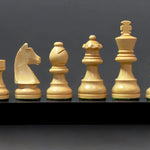
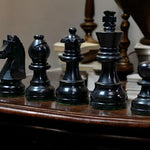
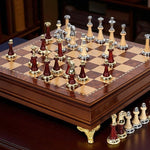
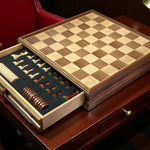
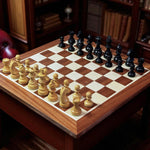
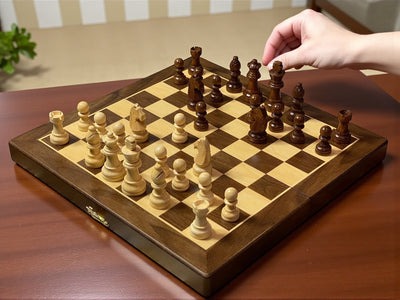
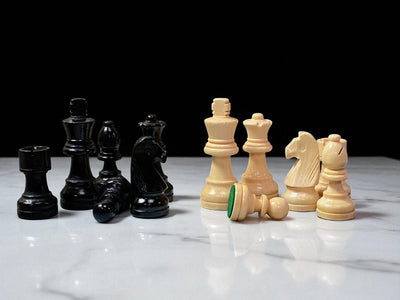
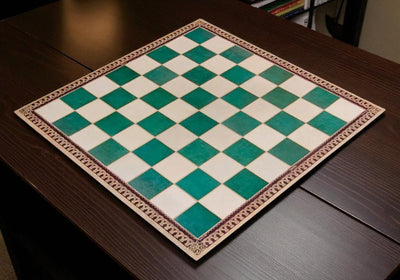
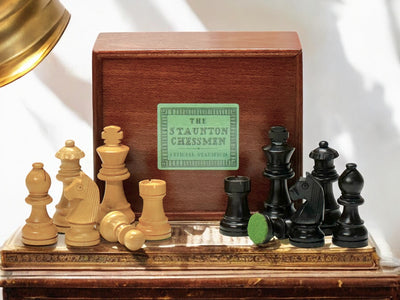
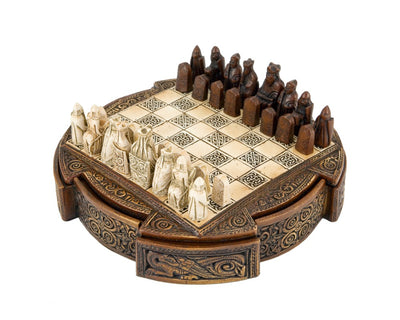
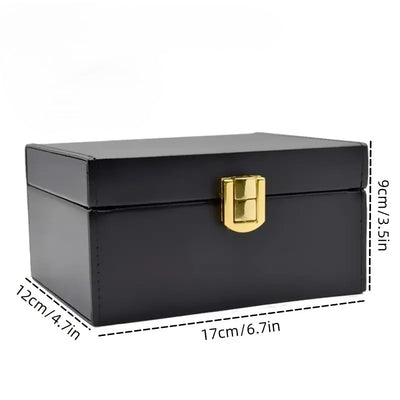
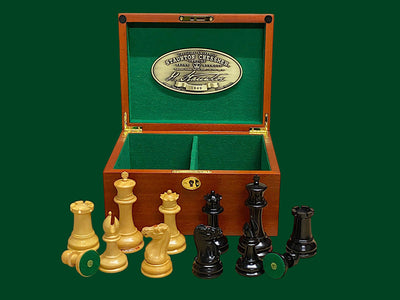
Leave a comment